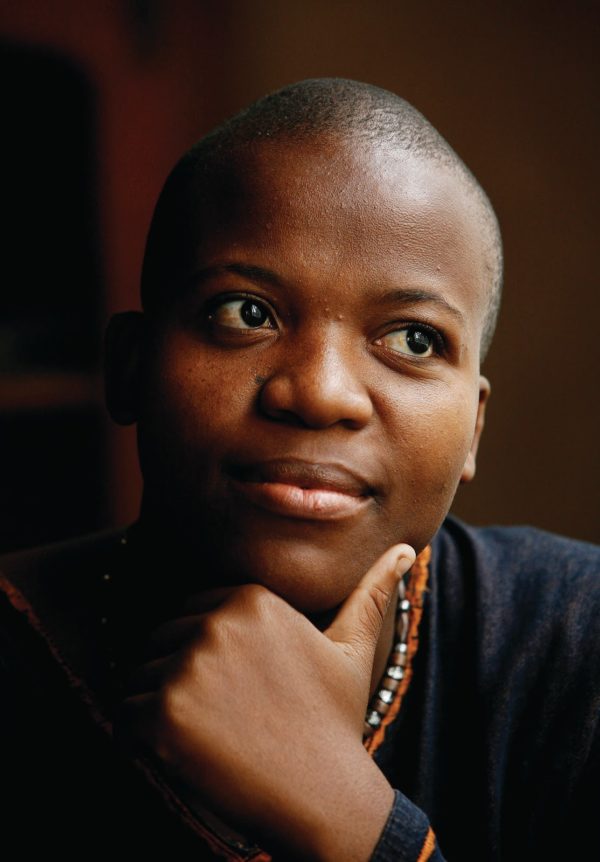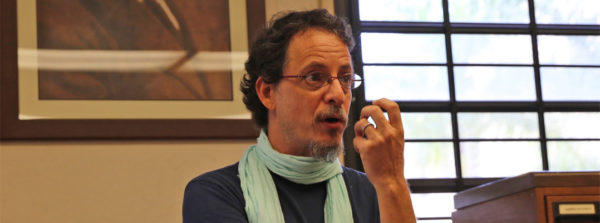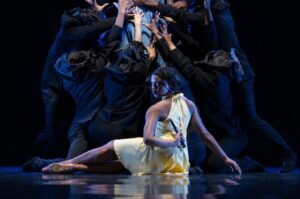
South Africa’s Zukiswa Wanner has co-founded a new intercontinental literary project, La Shamba. The collaboration with the Mexican writer Luis Philip Lomeli is an effort to build a platform for writing from Africa and Latin America.
La Shamba is a not-for-profit collective blog aimed to rejoin writers and readers from both sides of the Atlantic in a South-South conversation. Everyone is welcome to collaborate with original texts in any of the spoken languages in our two continents (fiction, playwrights or non-fiction) and translations on a copy-left basis.
Based on the belief “that a South-South dialogue is strongly needed. Without intermediaries,” the blog collects writing in English, Spanish, French, and Portuguese. Its plan is to publish “one text from each side of the Atlantic every week.”
As there is no payment (this is a non-for-profit collaborative blog on a copy-left basis), contributions can be previously published works as long as the contributing writer has copyright of the work submitted.
While still very experimental, we hope to eventually be able to translate all stories across English, Spanish, and Portuguese (at least) so that everyone, or almost everyone who visits this site can have access to all the stories in a language that they understand.
Zukiswa Wanner is well attuned to intercontinental projects. In 2012, she co-edited, with Rohini Chowdhury, an anthology of African and Asian short fiction, Behind the Shadows: Birth of an African-Asian Anthology.
Selected for the prestigious Africa39 list in 2014, Zukiswa made her debut in 2006 with the novel The Madams, which was shortlisted for the K Sello Duiker Award at the 2007 South African Literary Awards (SALA). Her other novels are Behind Every Successful Man (2008); Men of the South (2010), which was shortlisted for the Commonwealth Writers’ Prize (Africa region) and the Herman Charles Bosman Award in 2011; and London Cape Town Joburg (2014), which won the 2015 K Sello Duiker Memorial Literary Award.
In 2010, Zukiswa co-authored two works of nonfiction: A Prisoner’s Home, a biography on the first Mandela house 8115 Vilakazi Street, with the South African photographer Alf Kumalo; and L’Esprit du Sport, with the French photographer Amelie Debray. She has further written two children’s books, Jama Loves Bananas and Refilwe, which is a retelling, through African eyes, of the fairy tale “Rapunzel.”
A judge of the 2015 Etisalat Prize for Literature, she sat on the Writivism Board of Trustees and is a founding member of the ReadSA initiative, a campaign encouraging South Africans to read South African works.

Lomelí, author of the novel Cuaderno de Flores (Flower Notebook, 2007), has two collections of short stories: Todos santos de California (All Saints of California, 2002) which won the San Luis Potosí National Award for Best Short Story; and Ella sigue de viaje (She travels On, 2005) which included the story, “El cielo de Neuquén” (“The Sky of Neuquén”), winner of the Edmundo Valadés Latin American Short Story Prize. His “El emigrante” (“The Migrant”) is regarded as a classic of Spanish flash fiction and is argued to be the shortest in the language.
On La Shamba’s blog are already stories by Zukiswa Wanner (“The Departure”); Luis Felipe Lomelí (“Las nubes“); Puerto Rico’s Mayra Santos-Febres (“Alumbrando a Gabriel”); and Africa39 authors: Angola’s Ondjaki (“As duas bolas de Mané Abreviado“), Equatorial Guinea’s Recaredo Silebo Boturu (“La chica del barrio“), and Cote d’Ivoire’s Edwige-Renee Dro (“The Shoes”).
As far as stimulating initiatives go, this is one we will be keeping an eye on. Congratulations to Zukiswa and Lomeli for making this vision a reality.
Find out how to be part of this at La Shamba Blog.









COMMENTS -
Reader Interactions